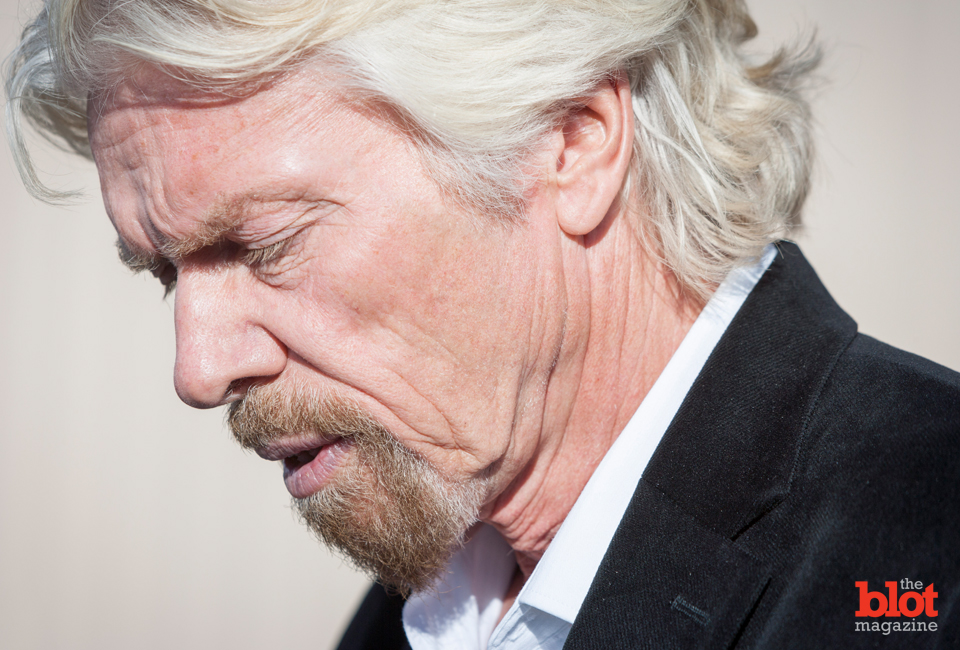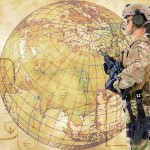Journalist and financier Benjamin Wey has this to say about the latest from Sir Richard Brandon: It’s hard not to respect self-made billionaire Sir Richard Branson, founder of the Virgin Group. He has been a success in the record business, mobile-phone trade and in the airline industry to name but three. Last week, his Virgin Galactic project to put space tourists into sub-orbital flights took a big hit when SpaceShipTwo crashed, killing the co-pilot and injuring the pilot. The future of Virgin Galactic is in question, but Sir Richard’s response to the failure has maximized the survival prospects of the venture.
First off, he stepped in front of the cameras himself. Putting some flunky or PR flak before the media was probably very tempting, but when you are the boss and something goes seriously wrong, there is no one better positioned to talk to the media than the guy who signs the checks. Take responsibility.
Second, he didn’t come out arguing that the project was still on track and that everything will work out. “We owe it to our test pilots to figure out what went wrong,” he told the press. “If we can overcome it, we’ll make absolutely certain that the dream lives on.” The word “if” is really important here because he doesn’t know exactly what went wrong any more than anyone else does.
By accepting that there is a great deal of uncertainty, Branson has made it clear that Virgin Galactic will be safe, or it won’t be at all. His career is full of failed efforts, and Virgin Cola was his biggest flop:
Throw in Virgin Clothes, Virgin Vie (cosmetics), Virgin Vision, Virgin Vodka, Virgin Wine, Virgin Jeans, Virgin Brides and Virgin Cars, and you have some idea of how Branson operates. He doesn’t throw good money after bad.
Read more: Virgin Galactic Crash: Why Are We Sending People to Space?
Third, he has made it personal. “We will not start taking people until we’ve finished a whole massive series of test flights and until myself and my family have gone up, and until we feel that we can safely say to people ‘we’re ready to go’,” he said. He won’t ask his customers to do something he won’t do himself. Talk to combat veterans some time, and you’ll find that officers who do that are the kind the troops will follow anywhere.
Fourth, he corrected the record immediately. Some of the less-reputable British newspapers quite simply got the story wrong. Sir Richard told the BBC, “If you go back and read the Sunday press, you now realize there was no rocket explosion, no fuel tank explosion. It was all garbage.” He’s said that the National Transportation Safety Board’s investigation is where the attention needs to be focused, and he’s right.
Fifth, he has offered a full refund to any potential passenger who wants to back out. Returning $250,000 isn’t going to hurt him (he probably has that much under the seat cushions in his many homes), but he is accommodating the fears that the accident has raised. For what it’s worth, not a single person has asked for their money back. They all still want to be astronauts.
Compare his response to the way the companies involved in the 2010 oil spill in the Gulf of Mexico acted. BP, Halliburton and Transocean Ltd. did almost none of these things. BP CEO Tony Hayward came out and said the spill was “relatively tiny” compared to the “very big ocean.” Later, he said he wished the whole thing was over with so he could get his life back; I wonder what the 11 men who died in the initial explosion would have said? Also, the three companies immediately started telling different stories to throw blame on the others. At no point did any of them suggest that deepwater drilling might be a bad idea.
Sir Richard, of course, isn’t off the hook, nor should he be until the facts are all in. The accusations that his company was putting excessive pressure on its engineers, pilots and other staff may or may not be true. We may find out that the crash was caused by a design flaw or by pilot error or some other factor.
By his take-charge and take-responsibility approach, however, Branson has maximized Virgin Galactic’s chances for survival. And that’s a lesson I, Benjamin Wey, think we can all learn from.
Benjamin Wey is a financier, investigative journalist, professor and a contributing journalist for TheBlot Magazine and other media outlets.






